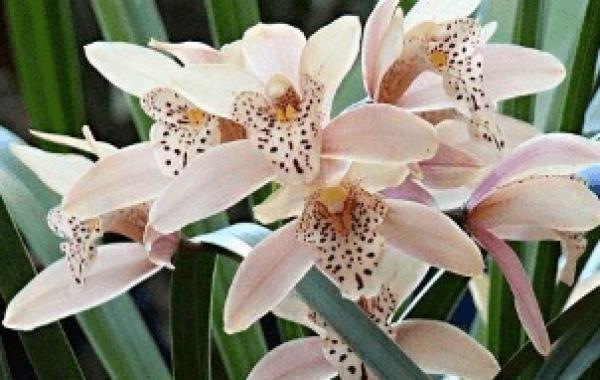How to fertilize orchids and when not to fertilize orchids?

Growing orchids, fertilization is good or bad, directly affect the growth of orchids, in the end what kind of fertilizer to orchids, or under what circumstances should not be fertilized to orchids.
Orchid fertilizer selection
Rotten farm manure
You can choose fermented farm manure, such as chicken manure, duck manure, sheep manure, or human and animal manure, but these things must be fermented for more than a year, otherwise they will smell and burn roots, and fermented fertilizers generally have no smell.
Pure plant organic fertilizer
In addition to human and animal dung, the countryside also uses organic fertilizer fermented with straw and wheat straw, which is what we call compost, which is used to plant fruit trees and can have a bumper harvest. Of course, it is also good to grow flowers. Flower friends who like to toss can ferment themselves with leaves, grass, peels and vegetable leaves. More lazy and clean flower friends can be fermented with ecological ready-made organic fertilizer and sugarcane stalks, which has the same composting effect as straw and straw in rural areas.
Fertilization method of orchid
If you use organic nutrient solution, use it once a week and dilute it 500 times. If you use cake fertilizer and human and animal manure, you can use it once every half a month. Remember to water it after fertilization. If you use organic nutrient solution and mix it directly with water, you don't have to water it.
Foliar fertilizer application
If you want orchids to grow strong, have green leaves and blossom, you should also spray foliar fertilizer. If you use organic nutrient solution, sprinkle it with water 1000 times, use it once a month, if it is a fertilizer such as cake fertilizer.
So when can't you fertilize the orchid?
1. Just planted orchids do not worry about fertilization, the purpose of orchid cultivation is to make orchids grow more robust, plants more exuberant, just planted orchids, have not yet taken the pot, immediately fertilize, but will affect the growth of orchids.
After about 2-3 weeks, the orchid returned to normal, and after growing a certain amount of new roots, the resistance was also enhanced and could be fertilized properly.
two。 Do not apply fertilizer when the plant is too thin, if your orchid leaves are dry, dull, abnormal growth, and do not sprout, first see what problems it is, whether it is infected with diseases and insect pests, or the basin soil is hardened, or the root system is rotten, after all these are ruled out, you can use a little foliar fertilizer to regulate the growth of the whole plant from the leaves and restore the orchid to vitality.
3. Flower buds are not full and do not apply fertilization. this situation generally occurs in autumn, when there are more and more roots and flower buds differentiate, there will be some abnormal flower buds, which may cause problems with the roots and the plants are still growing, but they are still barely surviving. At this time, we should stop fertilizing, spread foliar fertilizer first, and then irrigate the roots after returning to normal.
There are several other situations that do not apply fertilizer.
Early spring
The orchid has just come out of the room, but it has not resumed its growth, the temperature is relatively low, the growth is slow, and the root system is not absorbed smoothly. On the contrary, fertilization makes the root system breathe unsmoothly, affecting the growth of the orchid.
The height of summer
If the temperature is above 35 degrees, stop fertilizing. The orchids have been pruned and the roots absorb slowly. If you really want to apply fertilizer, it is recommended that the fertilizer should be more than 2 times thinner than usual, which can stimulate the orchid root, but does not harm the orchid root system and prepare for the next wave of flower buds.
No fertilization at noon
No matter what season it is, fertilizing at noon is not a good time, and it is also the same for other flowers. Generally, it is more appropriate to water in the morning and evening, and the temperature at noon is too high, especially in summer, fertilization is easy to cause fat injury.
Related
- Is the orchid suitable for indoor use? Is it good for the body?
- How to prevent the empty root of orchids?
- What to do after the crab claw orchid is withered?
- Why are the leaves of orchids always yellow? Fertilizing and watering.
- Can the root of the gentleman orchid be saved if it is rotten?
- Diagnosis and treatment of cotton-blowing beetle insects in Cymbidium
- There is a way for a gentleman's orchid to rot.
- What is the most suitable temperature and humidity for the orchid?
- How to raise a gentleman's orchid? Cultivation techniques of Cymbidium
- How to prepare the nutritive soil for the cultivation of Cymbidium


